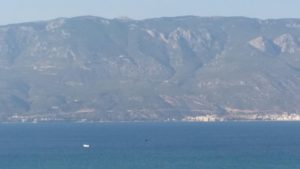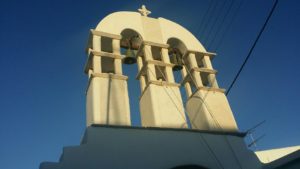Recent Learnings
My family consisting of my wife and me and two adult daughters, were all vaccinated in February as soon as vaccines were available. We were all excited to get it and we have viewed our vaccine status as a kind of imaginary shield against future disease. We were wrong.
Read more...
The Eschaton
Read more...
The Evolution of Religion
Read more...
The Purpose of Religion
Religion has developed a bad reputation in the western world. A major reason for this is that certain ideologies and political opportunists have hijacked Christian religion (in the west. Same thing happens in the east with other religions.) to maintain political dominance. As a result of this all too obvious fusion of Christian religion with a particular political and ideological position, those who don’t buy the politics simply discard Christianity and religion in general as a stooge for what they see as oppressive politics. In this note, I would like to demonstrate that what is needed is exactly the opposite of what all the “I’m spiritual but not religious” and “I’m atheist because your religion is bad” claim.
Read more...
Demo kratia and Ecclesia
Read more...
Church and State Revisited
I am, and many Americans are almost reflexively opposed to any conjunction of church and state. But if you think about how the modern state and modern religion got started (in 1500 BC), you will find there were lots of mutually reinforcing and important connecting points. Things such as adjudicating common civil disputes such as land boundaries, commerce, weights and measures, contracts, etc. In ancient Israel, from Moses to the second century AD, religious authorities also served as civil magistrates. To the north, in Greece, temple priests served similar roles. The system worked for centuries.
Read more...
View of the Ancient Mariner

Read more...
I Know Why the Caged Bird Sings
 I borrowed the title of this entry from Clinton-era poet-laureate, Maya Angelou’s book of poetry by the same title. It hints at knowing oppression (caging) firsthand; understanding why; and giving voice to that. In almost two weeks in a country infused with Greek Orthodox Church tradition, I have yet to find a single person who attends church even once a month on Sundays. My brief exposure to “the church” attending a couple of services underscored the fact that, at 65, I was the youngest person attending each time.
I borrowed the title of this entry from Clinton-era poet-laureate, Maya Angelou’s book of poetry by the same title. It hints at knowing oppression (caging) firsthand; understanding why; and giving voice to that. In almost two weeks in a country infused with Greek Orthodox Church tradition, I have yet to find a single person who attends church even once a month on Sundays. My brief exposure to “the church” attending a couple of services underscored the fact that, at 65, I was the youngest person attending each time.
Read more...
In Praise of Clear Language
One of the dozen or so books I will devour in the coming weeks is titled “Do I Make Myself Clear?”* by Sir Harold Evans, (hard-hitting British journalist who resides in the US and has held leading journalist positions with US News and World Report, The Atlantic Monthly and currently editor-at-large for The Week). I commend this book to every English-speaker who wishes to be clear in their written and vocal expressions. We have a clear warrant from scripture for this where Jesus tells us to basically say “Yes” or “No” to things and not insert a lot of words. Words are important. They can commit murder and they can lift up the brokenhearted.
Read more...
Leaving Home
I have traveled abroad dozens of times on business. When you know all the flight attendants by name on particular airline routes, you are probably flying too much. But this time was different. We went to seminary together as a family and it was a great adventure for all of us. The business travel was all just so much road warrior stuff. But this time was different.
Read more...
